Are you a student struggling with the costs of your education? If so, you're not aloneâmany students face financial challenges that can impact their academic journey. In this article, we'll explore how to write a compelling letter for a financial aid adjustment, including essential tips to help you effectively communicate your needs to the financial aid office. Ready to take control of your financial situation? Let's dive in!
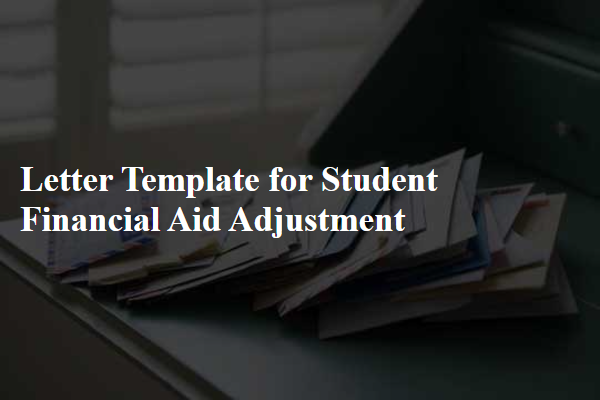
Personal Information and Student ID
Financial aid adjustment requests require precise personal information and student identification to ensure accurate processing. Students must include their full name and Student Identification Number (SID), vital for linking the request to their financial records. Providing contact details, like a personal email address and phone number, ensures swift communication regarding the status of the adjustment. Including the current academic term, such as Fall 2023 or Spring 2024, is essential to specify the request context. This information enables financial aid offices at universities to accurately assess individual circumstances and make necessary adjustments to financial aid packages efficiently.
Current Financial Circumstances
Students facing unexpected financial difficulties may seek an adjustment in their financial aid, particularly due to events such as job loss, family illness, or significant medical expenses. For instance, a student attending a public university in California may have recently lost a part-time job that supported their tuition fees, resulting in an inability to cover living expenses. Such changes often impact the cost of attendance (COA) which includes tuition, books, room, and board, previously calculated based on family contributions. In these cases, providing detailed evidence, like termination letters or medical bills, is crucial for reassessment of financial aid eligibility. Schools utilize this information to adjust the student's expected family contribution (EFC), potentially increasing grants or scholarships available. Overall, communicating current financial circumstances accurately is vital for students striving to secure necessary funds for their education.
Reason for Adjustment Request
Students often encounter financial circumstances that necessitate adjustments to their financial aid packages. Reasons for such requests may include a significant change in family income, such as job loss or unexpected medical expenses, which can greatly impact the family's ability to contribute to educational costs. Other factors include the departure of a parent or guardian, or increased tuition fees at institutions like state universities or private colleges, which have risen by an average of 3.5% annually in recent years. Additionally, unforeseen circumstances like natural disasters that affect living conditions can also warrant an adjustment. Providing documentation, such as pay stubs, tax returns, or letters from employers, supports the request and enhances the likelihood of a favorable outcome.
Supporting Documentation
Students frequently encounter financial challenges that can hinder their academic progress at institutions like the University of California, Los Angeles (UCLA). Each academic year, applicants may submit supporting documentation to adjust their financial aid packages. Essential documents, such as tax returns from the previous year, financial aid award letters, and proof of income or unusual expenses, play a critical role in evaluating eligibility for additional assistance. This process typically occurs during the fall semester, aligning with the university's financial aid review timeline. When students provide accurate and comprehensive information, it ensures a better allocation of funds tailored to their current financial needs. Potential adjustments could include increased grant amounts, work-study eligibility, or loan modification options to ease the financial burden and support continued education.
Conclusion and Contact Information
The financial aid adjustment process requires careful attention to detail and clear communication. Students seeking adjustments must ensure all required documents, such as tax returns and W-2 forms, are submitted accurately before deadlines. To conclude the request, students should express gratitude for the consideration of their appeal and emphasize the importance of financial support in achieving their academic goals. For any inquiries or further assistance, students should reach out to the financial aid office via the official contact number (555-1234) or email (financialaid@university.edu) for personalized guidance. Addressing these critical resources will facilitate a smoother adjustment process, ensuring students receive the necessary support for their educational journey.
Letter Template For Student Financial Aid Adjustment Samples
Letter template of financial assistance appeal due to unexpected expenses
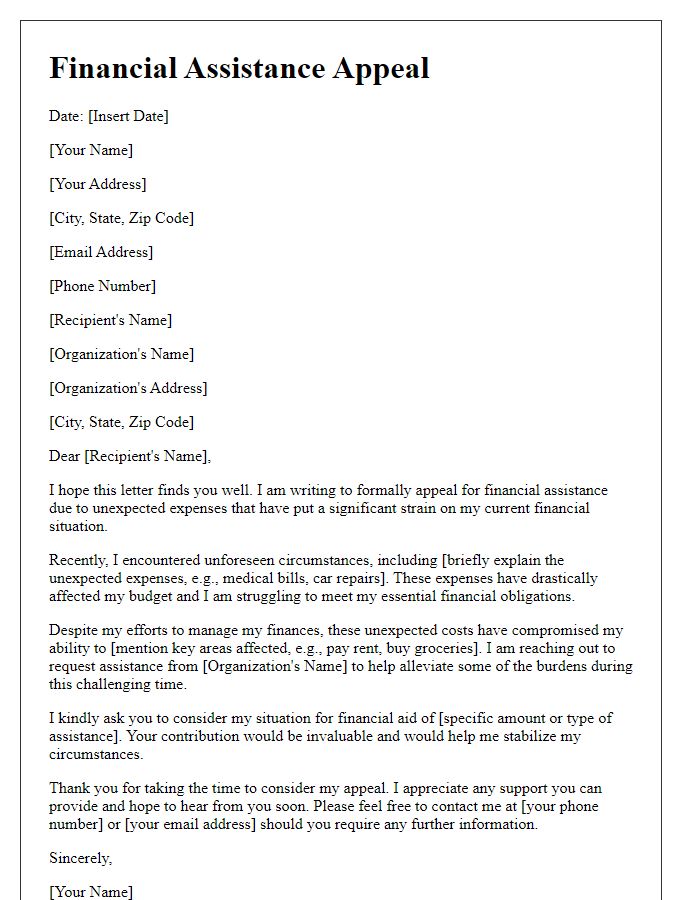

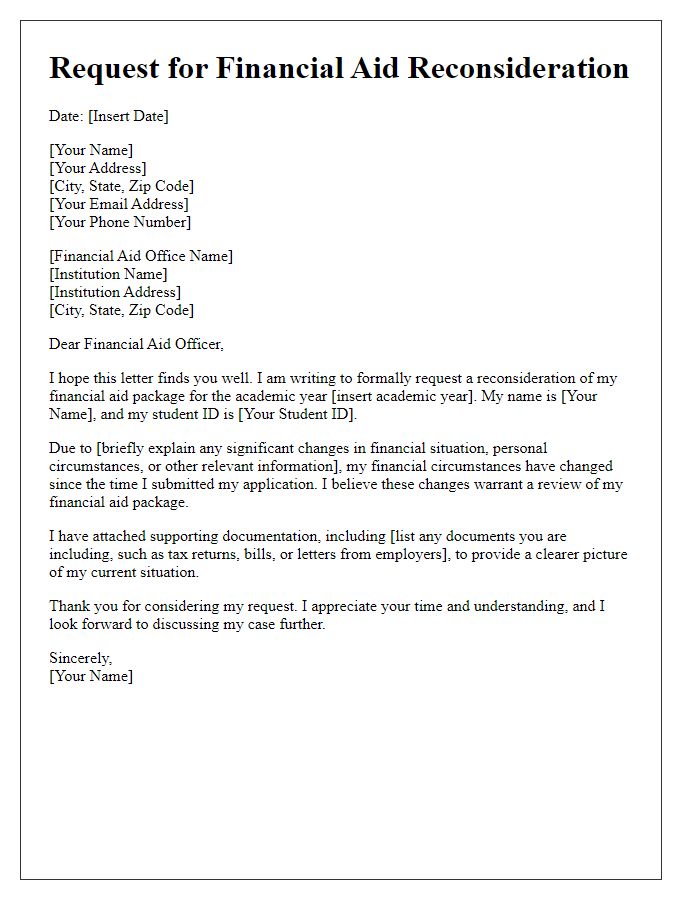
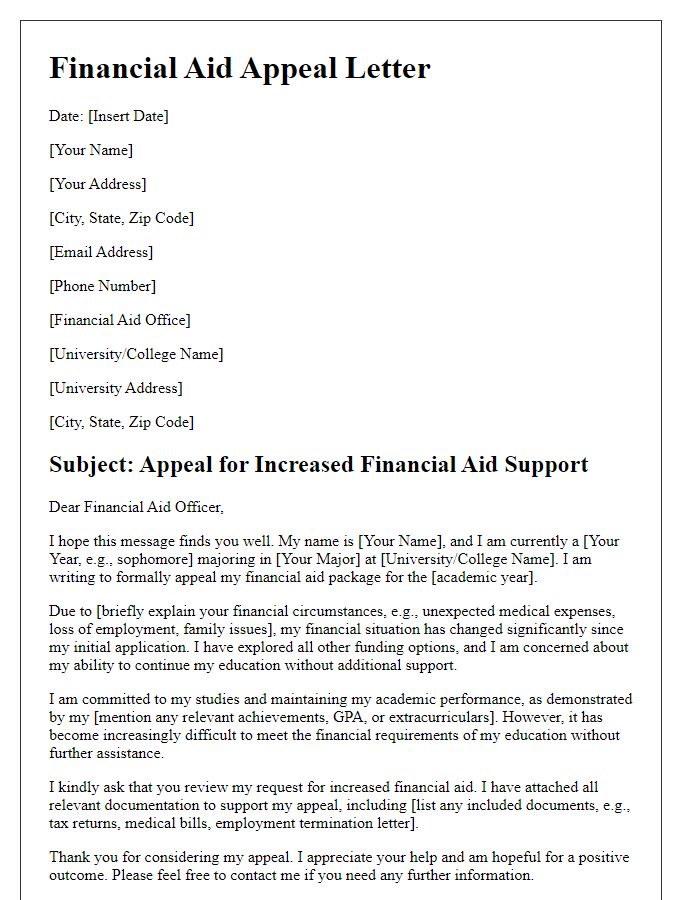
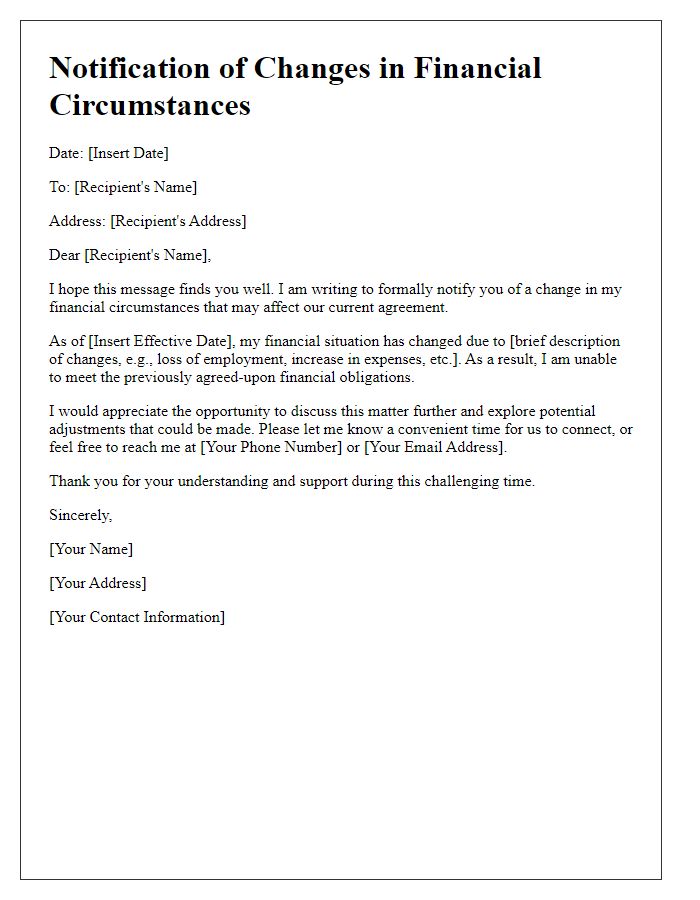
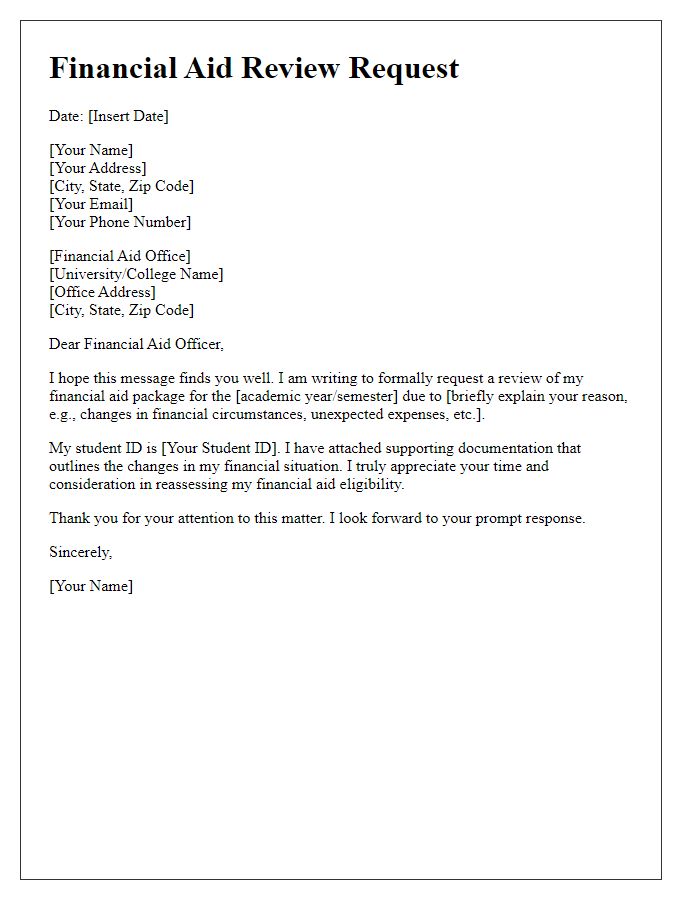
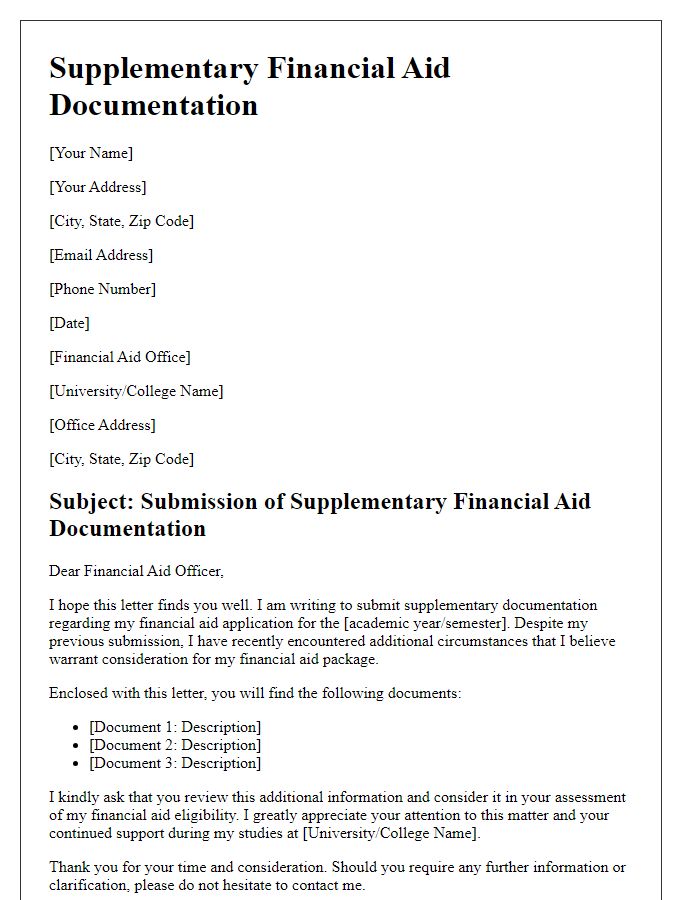
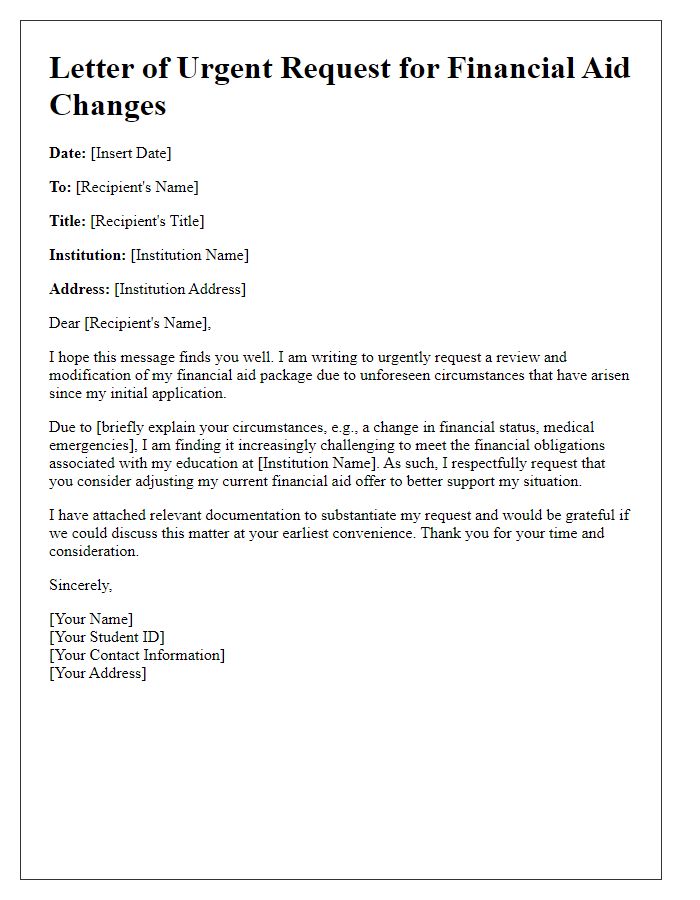
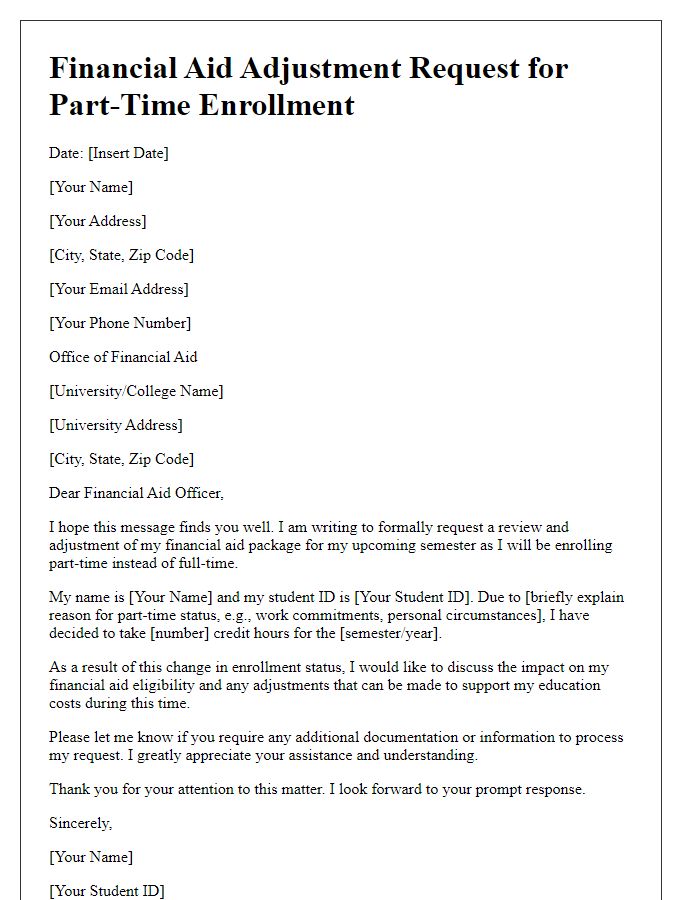
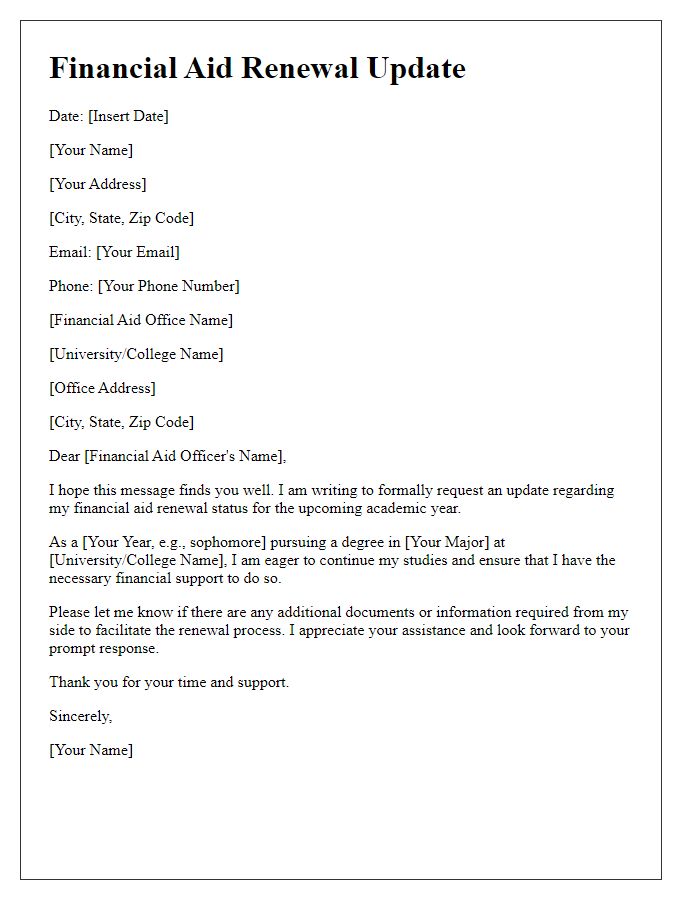
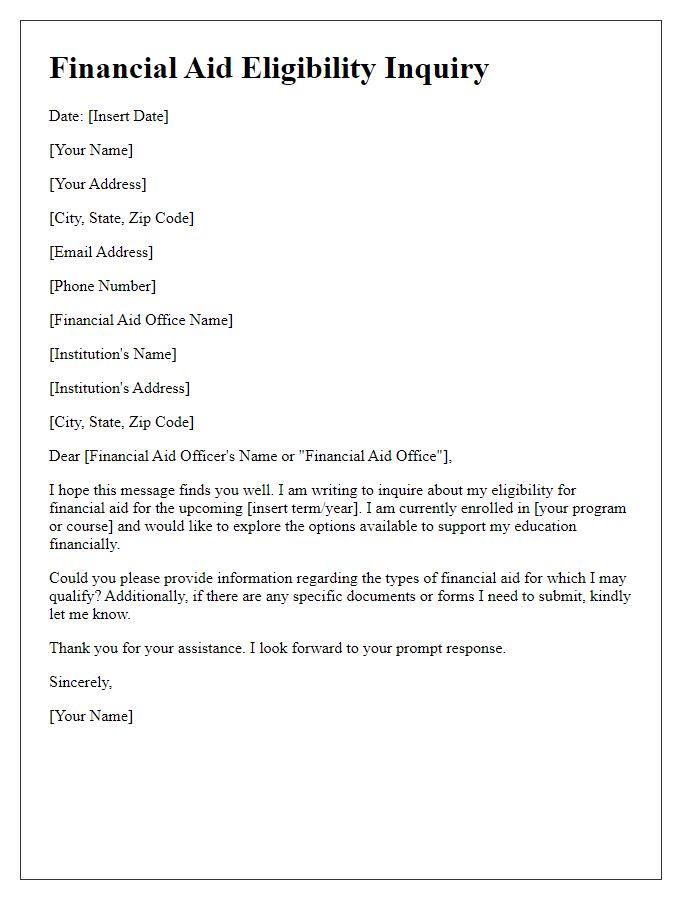

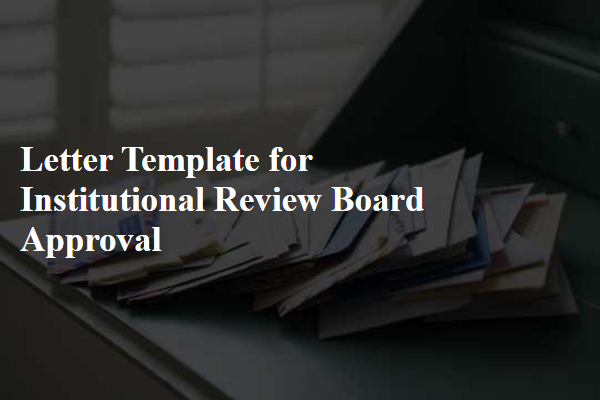
Comments